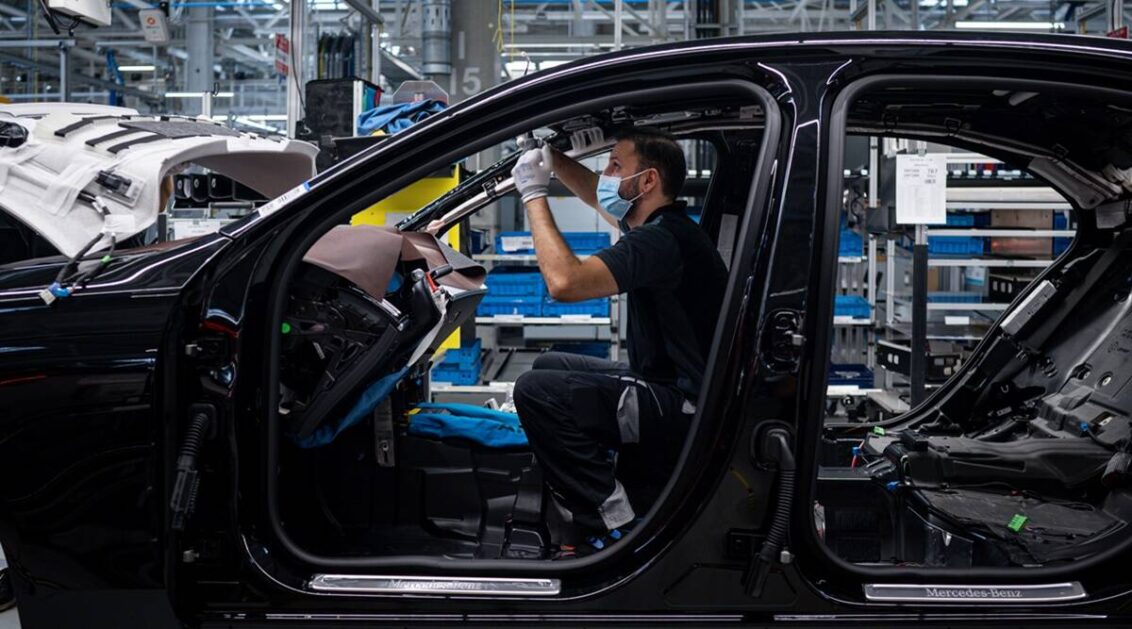The brand MG used to be linked with British sports vehicles that were both energetic and fussy to drive. In today’s world, the distinctive octagonal symbol represents a new type of driving ambition: China’s aspiration to become a major participant in the global automobile industry.
South Korea’s SAIC Motor purchased the MG brand in 2007 and is using it to promote a series of electric sport utility vehicles in Germany and other European countries. SAIC Motor is one of China’s Big Four automobile manufacturers. A good example of how Chinese automakers are taking advantage of the change to electric vehicles to compete with the American, European, and Japanese automakers who have long had a monopoly on the sector is MG.
The arrival of the Chinese manufacturers coincides with the rise in popularity of electric vehicles, which now account for over 10% of new car sales in Western Europe. Consumers are in a buying mode as a result of the pandemic-induced savings they have accumulated. Car makers, on the other hand, are cutting down on manufacturing due to a scarcity of microprocessors.
MG now has 350 dealers in 16 European nations, and the company is continuing to grow. A second group of Chinese manufacturers, Nio and BYD, is establishing a presence in Europe by means of Norway, which is home to the world’s most electrified major automobile market.
Nio, located in Shanghai, inaugurated its first international dealership in Oslo at the end of September, marking the company’s first foray outside of the country. BYD, located in Shenzhen, China, delivered the Tang, an electric sport utility vehicle, to its first client in Norway in August.
Another Chinese firm, Great Wall Motor, has revealed intentions to begin selling a battery-powered small car and a hybrid sport utility vehicle in Europe early next year.
Polestar, which is founded in Sweden but is owned by the Chinese conglomerate Geely Holding, has been selling a battery-powered vehicle manufactured in China in Europe and the United States since 2020. Many of the Tesla vehicles on European roads were also imported from the company’s facility in Shanghai, which is located in China. (This will change once the business completes the construction of a facility near Berlin).
The fact that Volkswagen, Mercedes-Benz and General Motors sell millions of vehicles in China means that they have nothing to complain about when Chinese manufacturers intrude on their territory. Despite the fact that China has the world’s biggest automobile market, its brands only have a small share of the worldwide market. Despite the fact that local carmakers are developing swiftly and have seized more than 40% of the domestic market, even Chinese consumers prefer international brands.
In any case, the presence of Chinese-made automobiles in Europe is another another concerning indicator for established automobile manufacturers that are already experiencing difficulties transitioning from internal combustion engines to battery-powered vehicles. The Chinese automakers are likewise looking to expand their operations in the United States, but their influence has been limited so far. Slovakia produces more automobiles for the United States market than China.
The Chinese automobile manufacturers learnt their craft from the European businesses that they are now competing against. Foreign automakers have long been expected to operate via joint ventures with local businesses and to share technological know-how with them, according to the Chinese government.
For foreign automakers, Europe is a notoriously tough market to get into. Just ask Ford Motor, which has a market share of barely 4% in the European Union, or Toyota, which has a market share of little more than 6% while having a hefty presence in the rest of the globe.
It’s possible that the timing will be better this time. Sales of electric vehicles, the technology that the Chinese are stressing, have more than quadrupled in Europe since 2020, despite a general decline in the industry. According to Mr. Schmidt, battery-powered vehicles accounted for around 9 percent of new automobiles sales in Western Europe through August, or 644,000 vehicles. Including plug-in hybrids, electric cars accounted for 18 percent of total vehicle sales.
The German political leaders are negotiating to create a government after the September national elections. The Green Party, which advocates a tougher position towards China than Angela Merkel, the country’s outgoing chancellor, is expected to be included in the next administration. It is possible that MG will be especially subject to worries about the confluence of government and private interests since its parent firm, SAIC, is majority controlled by the government.

